UN Secretary General António Guterres has launched a flash US$160 million ($234 million) appeal for flood-ravaged Pakistan, where more than 1100 people have been killed and 33 million others impacted in one of the worst monsoon seasons in more than a decade.
Tuesday's appeal came as Pakistani officials said the floods had already caused more than US$10 billion ($14.6 billion) in damages and urged more international assistance.
"The Pakistani people are facing a monsoon on steroids — the relentless impact of epochal levels of rain and flooding," Guterres said during the appeal's launch.
READ MORE: Solomon Islands suspends foreign naval visits after US ship unable to dock
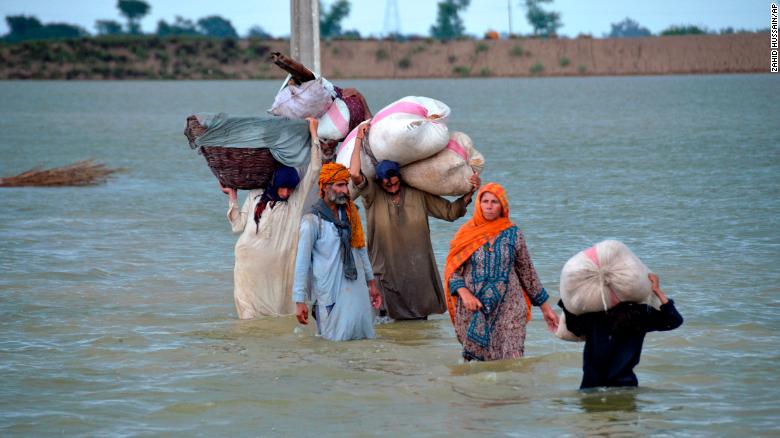
"As we continue to see more and more extreme weather events around the world, it is outrageous that climate action is being put on the back burner as global emissions of greenhouse gases are still rising, putting all of us —everywhere — in growing danger," he said.
"Let's stop sleepwalking towards the destruction of our planet by climate change," he said.
"Today, it's Pakistan. Tomorrow, it could be your country."

Images of water gushing down streets, swallowing villages and destroying bridges serve as a stark reminder of the inequities of the climate crisis, which impacts the developing world disproportionately. Richer countries also bear a much larger historical responsibility for the crisis in the first place.
Pakistan last year ranked as the eighth most affected nation by climate change from 2000 to 2019, in the Global Climate Risk Index by non-profit group Germanwatch. People living in hotspots like South Asia are 15 times more likely to die from climate crisis impacts.
"This is a climate crisis," Abdullah Fadil, UNICEF's representative in Pakistan told CNN.
"A climate that has been mostly done by richer countries, contributing to the crisis, and I think it is time that the world responded to support Pakistan in this time of need."
READ MORE: Speeding Perth P-plater who hit three-year-old jailed
The deadly floods are threatening to engulf up to a third of the nation by the end of the monsoon season, taking a high toll on lives but also infrastructure, and wreaking havoc on crops across farmland in the middle of a food crisis.
Planning Minister Ahsan Iqbal revealed the estimated US$10 billion cost to the country on Monday.
"The world needs to come to Pakistan's assistance to deal with the effects of climate change," he told CNN.
In a statement on Monday, IRC's Pakistan country director Shabnam Baloch said that Pakistan produced less than 1 per cent of the world's carbon footprint.
A lack of hygiene facilities and clean drinking water has exacerbated the risk of diseases spreading in flooded areas, with nearly 20,000 people in need of critical food supplies and medical support, Baloch said.
READ MORE: Two arrested after man dies in Melbourne car crash
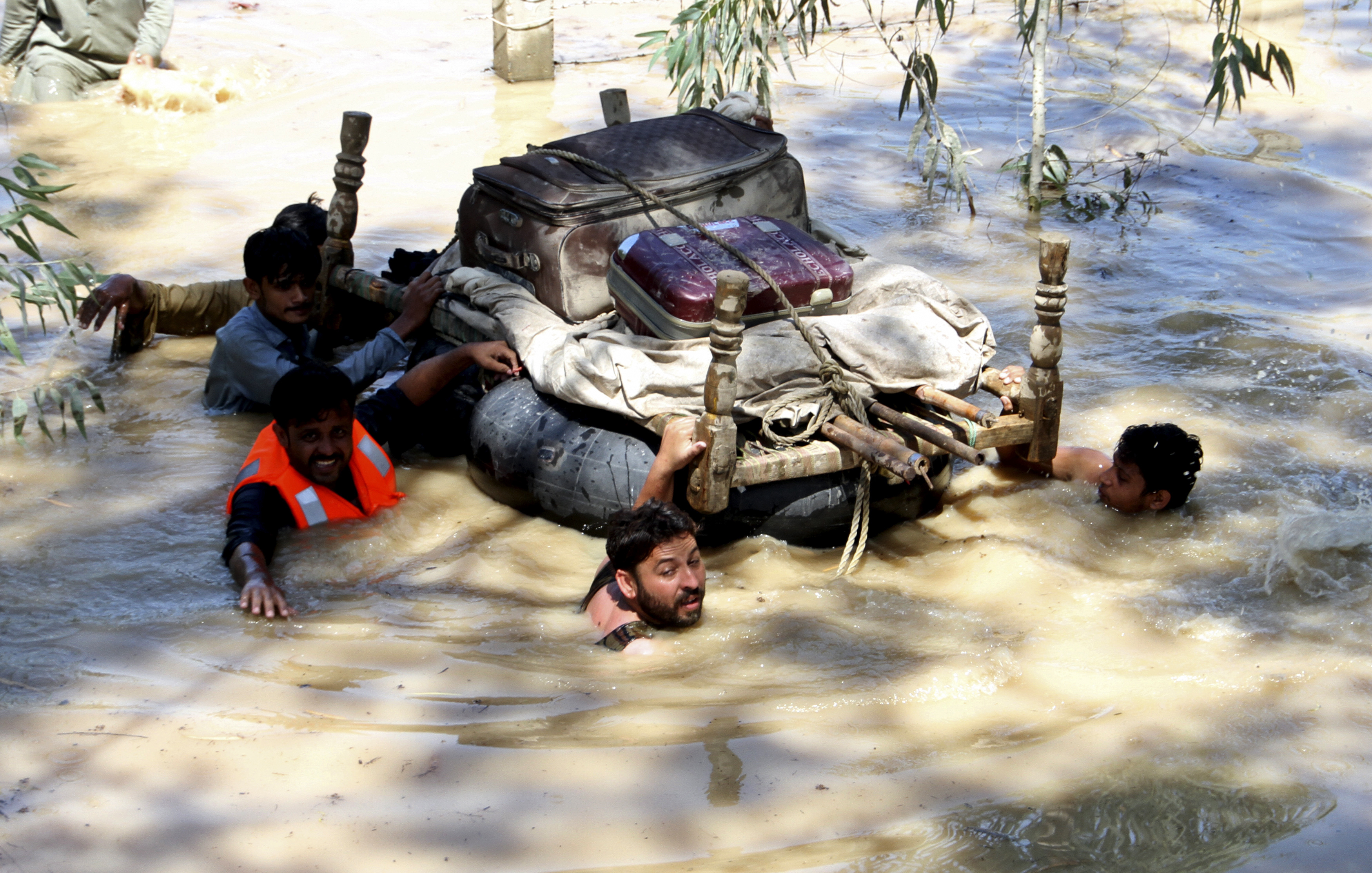
"Our needs assessment showed that we are already seeing a major increase in cases of diarrhoea, skin infections, malaria and other illnesses," she said.
"We are urgently requesting donors to step up their support and help us save lives."
On Tuesday, the US Agency for International Development (USAID) announced it will provide US$30 million in humanitarian assistance in response to the flooding in Pakistan.
"With these funds, USAID partners will prioritise urgently needed support for food, nutrition, multi-purpose cash, safe water, improved sanitation and hygiene, and shelter assistance," the agency said in a press release, adding that a USAID disaster management specialist has already arrived in Islamabad to assess the impact of the floods and to coordinate with partners on the ground.
READ MORE: Alleged killer claimed to be British royal before setting housemate alight, Brisbane
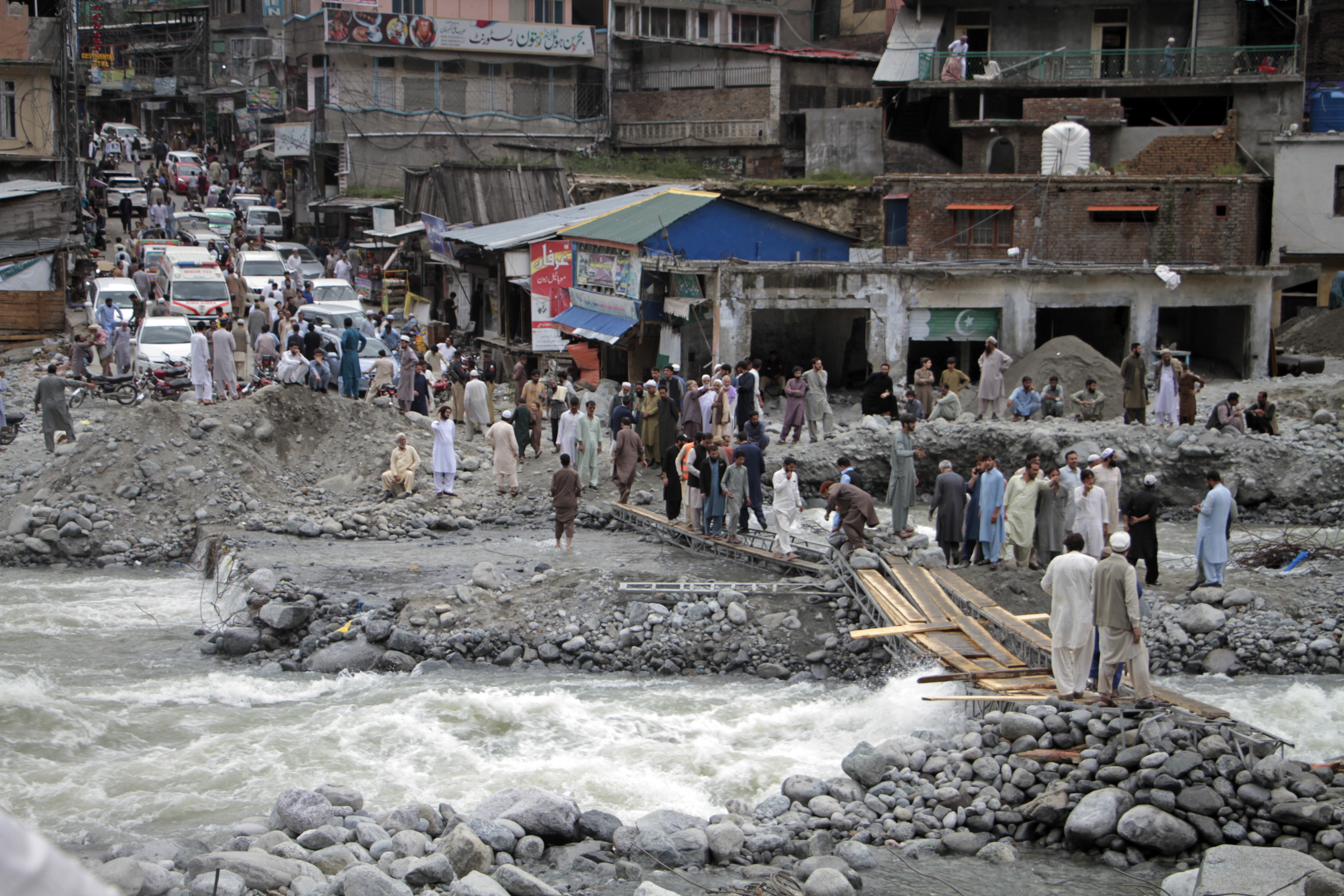
One-third of Pakistan could be under water soon
In a statement on Tuesday, Pakistan's military said rescue missions were ongoing and international aid was beginning to arrive in the country, including seven military aircraft from Turkey and three from the United Arab Emirates.
Helicopters had evacuated more than 300 stranded people and distributed more 23 tonnes of relief items, while more than 50 medical camps have been established with more than 33,000 patients being treated, the statement said.
Also on Tuesday, China will send two aircraft carrying 3000 tents and Japan will send tarpaulins and shelters, the statement said, adding that the United Kingdom, Canada, Australia and Azerbaijan have announced financial assistance.

The International Monetary Fund (IMF) provided another lifeline Monday, releasing US$1.17 billion in bailout funds to avert a default on the South Asian nation's debt obligations as it grapples with political and economic turmoil worsened by the unprecedented floods.
Peter Ophoff, head of the International Federation of Red Cross and Red Crescent Societies (IFRC) in Pakistan told CNN he had not seen anything on the scale of the floods in nearly three decades working for the aid agency. The country was, however, hit with similarly devastating floods in 2010.
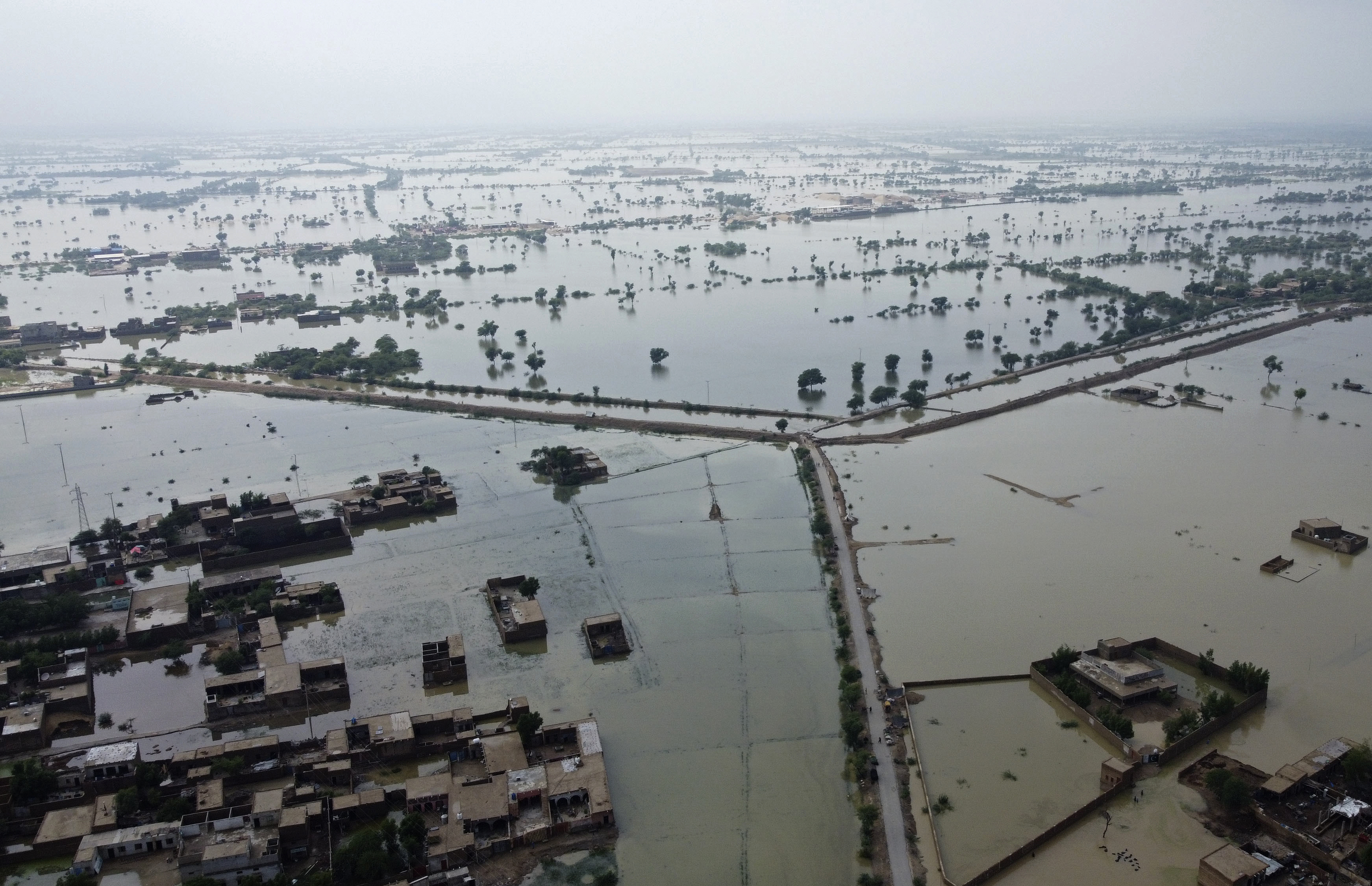
"Pakistan is in dire need and the damages are here and we will be in this a very long time," Ophoff said.
"It's not months but years we are talking about."
The 33 million people impacted by the floods and rain represent 15 per cent of the population.
Among 1136 people killed since mid-June were 386 children, the National Disaster Management Agency (NDMA) said Monday, as the unrelenting rain raised fears of more fatalities to come. Nearly half a million homes have been destroyed, according to NDMA.
"By the time this is over, we could well have one quarter or one third of Pakistan under water," Pakistan's climate change minister Sherry Rehman told Turkish news outlet TRT World last week.
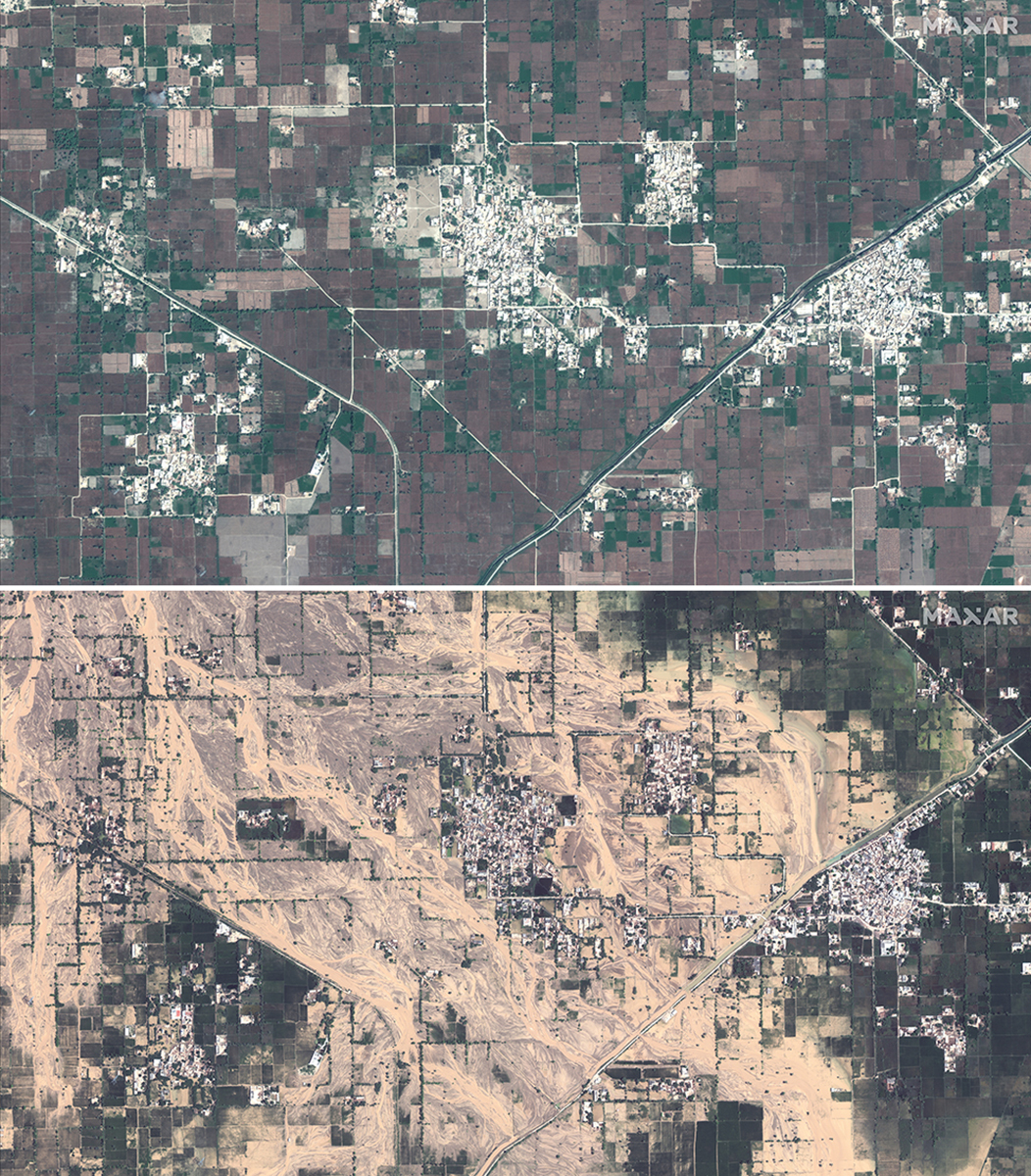
'Water gushed in': Dramatic scenes of disaster
It was raining but not heavily, Ali Jan told Reuters on Monday, as he stood surrounded by water in Chadsadda in northern Pakistan. But that quickly changed.
"Suddenly the outer wall of the compound collapsed and water gushed in," Jan said.
"We barely managed to save ourselves. By the time the women were leaving the house, the water had become almost waist-deep. We evacuated the women and the cattle. The rest is there for you to see. Crops have also been destroyed."
In videos shared by the Alkhidmat Foundation Pakistan, its volunteers used a bed frame and makeshift pulley system to help a child and elderly man cross rushing floodwaters, according to the NGO's digital media manager Ihtisham Khaliq Waseer.
More than 3000 volunteers from the NGO are distributing aid across the country, he said.
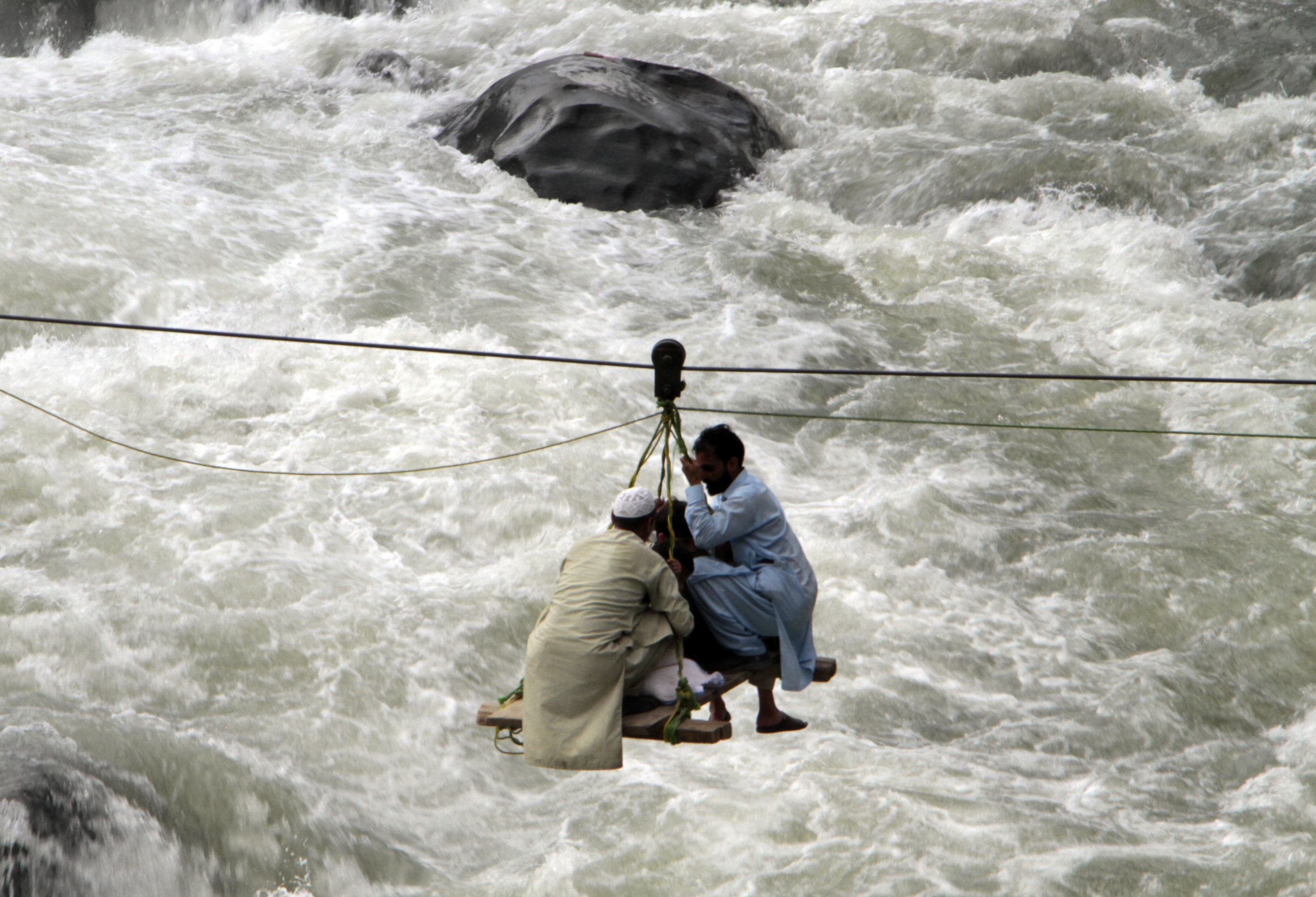
"We are getting aid but it's not enough with what we need on the ground, because the damages are very much higher than expected," he said, adding that volunteer teams have been stretched thin delivering supplies to hard-to-reach areas for weeks.
Waseer said he hopes that as rains weaken and flood waters recede in the coming week based on weather forecasts, his team would be able to deliver food rations and set up medical centres in remote areas.
Source: https://ift.tt/Ode29bk
Comments
Post a Comment